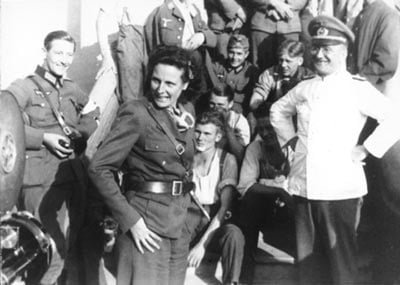Born: August 22, 1902, Berlin, Germany
Died: September 8, 2003, Pöcking

Leni Riefenstahl was a German motion-picture actress and director, best known for her documentary films of the 1930s on the National Socialist movement in Germany. Born Helena Bertha Amalie in Berlin, she trained as a painter and dancer. She began her career in cinema with a role in Der heilige Berg (1926; Peaks of Destiny, 1926), by German director Arnold Fanck, and subsequently appeared in several more of Fanck’s bergfilme (mountain films), a popular genre that presented dramatic situations in challenging mountaintop settings. In 1932, Riefenstahl wrote, directed, produced and starred in her own mountain film, Das blaue Licht (The Blue Light, 1932), a visually arresting tale of mountain climbing, love, and mysticism.
During the 1930s Riefenstahl also directed a series of documentary films supported by German dictator Adolf Hitler and his National Socialist (Nazi) party. Triumph des Willens (1935; Triumph of the Will, 1935) is a strikingly filmed glorification of the Nazi party using its specially staged 1934 Nürnberg Rally. In Olympiad (1938; Olympia, 1938), a two-part documentary of the 1936 Olympic Games in Berlin, Riefenstahl used novel camera positions, slow motion, long lenses and creative editing. During World War II (1939-1945), she worked on her film Tiefland, based on the opera of that name by Scottish-born German composer Eugen D’Albert. The film, completed after Riefenstahl had been released from her postwar imprisonment as a Nazi collaborator, was first shown in 1954. Riefenstahl then worked as a still photographer, mostly in Africa. Her autobiography, Leni Riefenstahl, A Memoir, was published in 1993.
